September 9 stands as one of history’s most eventful days, witnessing the rise and fall of empires, groundbreaking discoveries, and moments that shaped our modern world across centuries of human achievement.
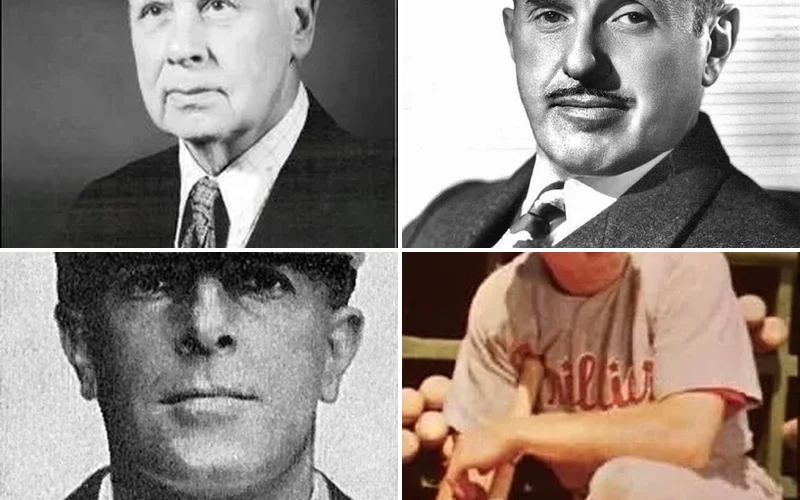
Politics and Government Events on September 9
1922 – Greco-Turkish War Ends with Turkish Victory
The Greco-Turkish War reached its decisive conclusion as Turkish forces achieved complete victory over Greek armies in Smyrna. This triumph marked the final collapse of the Greek military campaign in Asia Minor.
The Turkish success fundamentally reshaped the political landscape of the eastern Mediterranean. The victory paved the way for the establishment of modern Turkey under Mustafa Kemal Atatürk’s leadership.
1923 – Atatürk Founds Republican People’s Party

Mustafa Kemal Atatürk established the Republican People’s Party, creating the foundational political organization for the emerging Turkish Republic. This party would serve as the primary vehicle for implementing sweeping modernization reforms.
The party’s formation marked a crucial step in Turkey’s transformation from Ottoman Empire to secular republic. Atatürk’s political movement would dominate Turkish politics for decades to come.
1948 – North Korea Established
Kim Il Sung proclaimed the establishment of the Democratic People’s Republic of Korea, creating the communist state that would dominate the northern half of the Korean Peninsula. This declaration formalized the division of Korea into two competing ideological systems.
The new government immediately began implementing Soviet-style political and economic structures. This moment marked the beginning of one of the world’s most enduring Cold War divisions.
1965 – Department of Housing and Urban Development Created
The United States established the Department of Housing and Urban Development as a cabinet-level federal agency. This new department consolidated various housing programs under unified federal oversight.
The creation addressed growing urban challenges and housing shortages across America. The department would play a crucial role in shaping American housing policy for generations.
1969 – Canada’s Official Languages Act Takes Effect
Canada’s Official Languages Act came into force, making French equal to English throughout the federal government. This landmark legislation fundamentally altered Canada’s linguistic landscape and governmental operations.
The act guaranteed bilingual services in federal institutions across the country. This change reflected Canada’s commitment to recognizing its dual linguistic heritage and promoting national unity.
1991 – Tajikistan Declares Independence
Tajikistan declared its independence from the crumbling Soviet Union, joining the wave of republics breaking away from Moscow’s control. This declaration marked the birth of Central Asia’s smallest and most mountainous nation.
The newly independent country faced immediate challenges of nation-building and economic transition. Tajikistan’s independence would soon be tested by civil war and political instability.
Military and Naval History on September 9
1914 – Canadian Machine Gun Brigade Created
The Canadian Automobile Machine Gun Brigade emerged as the first fully mechanized unit in the British Army during World War I. This innovative formation combined automotive mobility with concentrated firepower in an unprecedented military configuration.
The brigade’s creation represented a revolutionary approach to mechanized warfare. Canadian military engineers pioneered tactics that would influence armored warfare development throughout the conflict.
1939 – Battle of Hel Begins
The Battle of Hel commenced as Polish forces prepared for their longest defensive stand during the German invasion. This coastal fortress would become the last major Polish stronghold to resist Nazi occupation.
Polish defenders demonstrated remarkable resilience against overwhelming German superiority. The battle would continue for weeks, symbolizing Polish determination to resist fascist aggression.
1940 – Japanese Bomb Oregon
A Japanese floatplane successfully dropped incendiary bombs on Oregon, marking the first foreign attack on the continental United States since the War of 1812. This audacious raid demonstrated Japan’s capability to strike American territory.
The attack, though causing minimal damage, shocked American civilians and military leaders. This event highlighted the vulnerability of the American West Coast to Japanese naval aviation.
1943 – Allies Land at Salerno and Taranto
Allied forces launched simultaneous amphibious assaults at Salerno and Taranto, opening the Italian campaign with coordinated landings. These operations marked the beginning of the Allied invasion of mainland Europe.
The landings faced fierce German resistance but established crucial footholds in southern Italy. These beachheads would serve as launching points for the arduous campaign northward through the Italian peninsula.
1944 – Bulgarian Government Falls to Soviet-Backed Coup
The Fatherland Front seized power in Bulgaria through a coordinated military coup and armed rebellion across the country. This dramatic political shift brought a pro-Soviet government to power in southeastern Europe.
The coup marked Bulgaria’s switch from Axis to Allied alignment in the final phase of World War II. Soviet influence would dominate Bulgarian politics for the remainder of the war and beyond.
1945 – Japan Formally Surrenders to China
The Empire of Japan formally surrendered to China, officially ending the Second Sino-Japanese War that had devastated both nations. This ceremony marked the conclusion of Asia’s longest-running World War II conflict.
The surrender ceremony symbolized China’s emergence as a victorious Allied power. This moment represented the beginning of China’s complex post-war reconstruction and political transformation.
Science and Discovery Milestones on September 9
1940 – First Remote Computer Operation
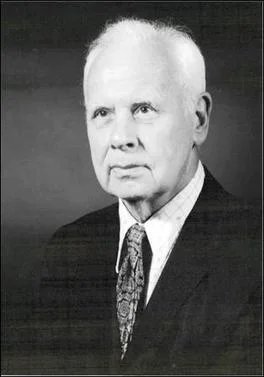
George Stibitz achieved the first remote operation of a computer, demonstrating revolutionary computing capabilities from a distance. This groundbreaking experiment established the foundation for modern networked computing systems.
Stibitz’s demonstration proved that computers could be operated remotely through telecommunications networks. This innovation would eventually enable the development of the internet and distributed computing systems.
1943 – First Computer Bug Discovered
Harvard University researchers discovered the first documented computer bug when a moth became lodged in a relay of the Harvard Mark II computer. This incident coined the term “bug” for computer malfunctions.
The discovery occurred during routine debugging procedures at Harvard’s computation laboratory. This moment established terminology that would become standard in computer science and software engineering.
1972 – Mammoth Cave System Connected
Cave Research Foundation explorers discovered a crucial link between Kentucky’s Mammoth and Flint Ridge cave systems. This connection created the world’s longest known cave passageway system.
The discovery revolutionized understanding of underground geological formations in the region. This find established Mammoth Cave as an unparalleled natural wonder and scientific research site.
1954 – Devastating Algerian Earthquake

A powerful 6.7 magnitude earthquake struck northern Algeria with extreme intensity, killing at least 1,243 people and injuring thousands more. The seismic event devastated communities across the region.
The earthquake’s extreme Mercalli intensity rating of XI caused widespread destruction of buildings and infrastructure. This natural disaster highlighted the vulnerability of North African settlements to seismic activity.
Cultural and Arts Events on September 9
1956 – Elvis Presley’s Ed Sullivan Show Debut

Elvis Presley made his first appearance on The Ed Sullivan Show, performing for an estimated 60 million television viewers. This performance marked a pivotal moment in American popular culture and rock and roll history.
The appearance catapulted Presley to unprecedented national fame and controversy. His performance style challenged conventional entertainment norms and helped establish rock and roll as a dominant cultural force.
2014 – U2’s Songs of Innocence Global Release
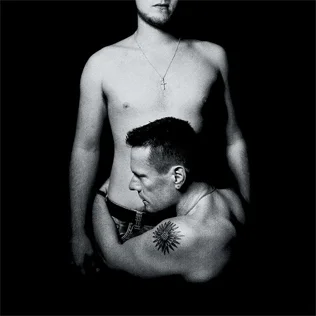
U2’s album Songs of Innocence was automatically distributed to over 500 million iTunes users worldwide without charge. This unprecedented digital release strategy revolutionized music distribution and marketing approaches.
The automatic download sparked intense debate about digital privacy and consumer consent. This innovative release method demonstrated the power of digital platforms to reach global audiences instantly.
1901 – Henri de Toulouse-Lautrec Dies
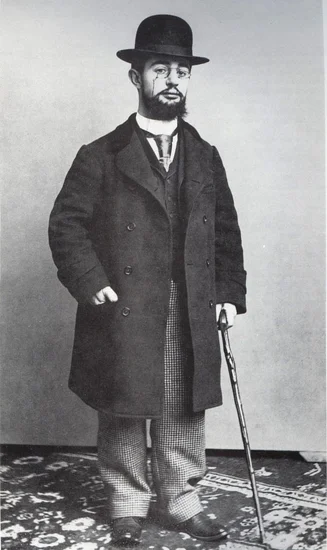
Henri de Toulouse-Lautrec, the revolutionary French painter and illustrator, died at age 36 after transforming artistic representation of Parisian nightlife. His distinctive style captured the essence of Belle Époque entertainment culture.
Toulouse-Lautrec’s legacy includes iconic depictions of Montmartre’s cabarets and dance halls. His artistic innovations influenced generations of artists and established new standards for commercial and fine art.
Religious and Social Events on September 9
1993 – PLO Recognizes Israel
The Palestine Liberation Organization officially recognized Israel as a legitimate state as part of the Israeli-Palestinian peace process. This historic declaration marked a fundamental shift in Middle Eastern diplomatic relations.
The recognition opened new possibilities for peaceful coexistence between Israelis and Palestinians. This moment represented the culmination of secret diplomatic negotiations and international mediation efforts.
1971 – Attica Prison Riot Begins
The four-day Attica Prison riot commenced, ultimately resulting in 39 deaths when state troopers stormed the facility. This uprising highlighted systemic problems within the American correctional system.
The riot exposed harsh conditions and inadequate treatment of prisoners throughout the United States. This tragic event sparked nationwide prison reform movements and debates about criminal justice policy.
1924 – Hanapepe Massacre Occurs
The Hanapepe massacre took place on Kauai, Hawaii, resulting in multiple deaths during labor disputes. This violent confrontation reflected deep tensions between plantation workers and management in territorial Hawaii.
The incident highlighted the harsh working conditions faced by immigrant laborers in Hawaiian sugar plantations. This tragedy became a symbol of labor struggles in America’s Pacific territories.
Business and Economic Events on September 9
1965 – Hurricane Betsy Causes First Billion-Dollar Damage
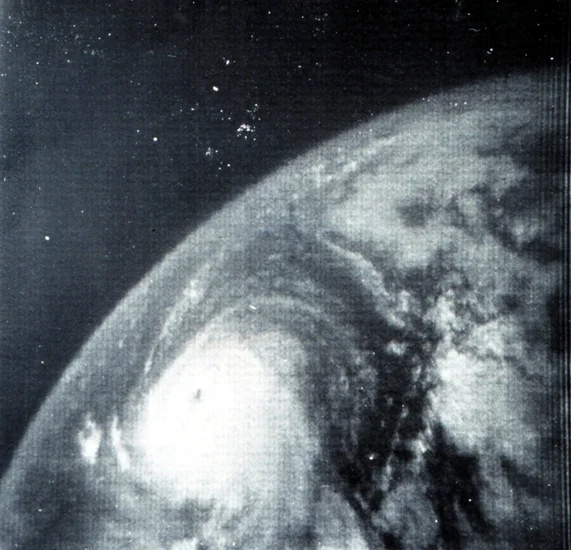
Hurricane Betsy made its second landfall near New Orleans, causing $1.42 billion in damages and becoming the first hurricane to exceed $1 billion in unadjusted costs. The storm killed 76 people and devastated coastal communities.
The hurricane’s unprecedented economic impact changed how insurance companies and governments assessed natural disaster risks. This event established new standards for emergency preparedness and disaster response funding.
2009 – Dubai Metro Opens

The Dubai Metro was ceremonially inaugurated as the Arabian Peninsula’s first urban train network. This ambitious transportation project represented Dubai’s commitment to modern infrastructure development and urban planning.
The metro system transformed Dubai’s transportation landscape and reduced traffic congestion significantly. This achievement demonstrated the emirate’s ability to implement large-scale infrastructure projects successfully.
2012 – Indian Space Agency Orbital Success
The Indian space agency successfully launched its heaviest foreign satellite, marking the 21st consecutive successful PSLV launch. This achievement demonstrated India’s growing capabilities in commercial space services.
The successful mission strengthened India’s position in the global satellite launch market. This accomplishment showcased the country’s technological advancement and competitive pricing in space commerce.
Transportation and Infrastructure on September 9
1966 – National Traffic Safety Act Signed
President Lyndon B. Johnson signed the National Traffic and Motor Vehicle Safety Act into law, establishing federal safety standards for automobiles. This legislation revolutionized automotive safety requirements and consumer protection.
The act created mandatory safety features including seat belts, padded dashboards, and improved braking systems. This law saved countless lives by establishing comprehensive vehicle safety standards across the industry.
1969 – Mid-Air Collision Over Indiana
Allegheny Airlines Flight 863 collided with a Piper Cherokee over Indiana, killing all 83 people aboard both aircraft. This tragic accident highlighted the need for improved air traffic control systems.
The collision prompted significant changes in aviation safety protocols and radar coverage. This disaster contributed to the development of modern air traffic management systems and pilot training requirements.
1990 – Space Shuttle Discovery Launches
Space Shuttle Discovery launched on mission STS-64, continuing NASA’s ambitious space exploration program. The mission carried advanced scientific equipment and conducted important orbital experiments.
The successful launch demonstrated NASA’s continued commitment to space exploration and scientific research. This mission contributed valuable data for future space station construction and scientific advancement.
Sports and Recreation on September 9
1915 – Baseball Pioneer Albert Spalding Dies
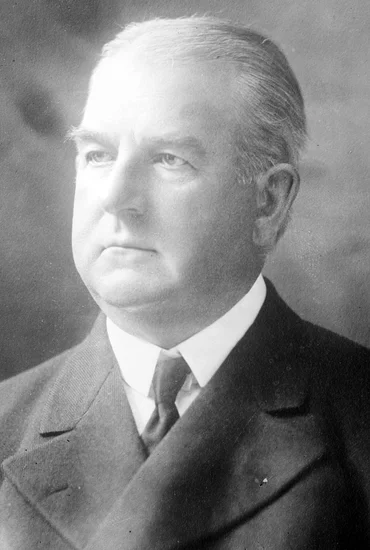
Albert Spalding, the legendary baseball player and sporting goods entrepreneur, died after revolutionizing professional baseball and sports equipment manufacturing. His company became synonymous with quality athletic equipment worldwide.
Spalding’s innovations in baseball equipment design and manufacturing set industry standards. His business empire helped establish professional sports as a major American entertainment industry.
1958 – Cricket Legend Charlie Macartney Dies

Charlie Macartney, the Australian cricket legend known for his aggressive batting style, died after a distinguished career. His innovative approach to batting influenced generations of cricket players worldwide.
Macartney’s military service during World War I demonstrated his character beyond athletics. His cricket achievements and wartime service made him a beloved figure in Australian sports history.
1997 – Baseball Hall of Famer Richie Ashburn Dies

Richie Ashburn, the Philadelphia Phillies Hall of Fame outfielder and beloved sportscaster, died after a remarkable career in baseball. His playing career and broadcasting work made him a Philadelphia sports icon.
Ashburn’s transition from player to broadcaster showcased his deep knowledge of baseball. His wit and insight entertained Philadelphia fans for decades through television and radio commentary.
Notable Births on September 9
1941 – Otis Redding Born
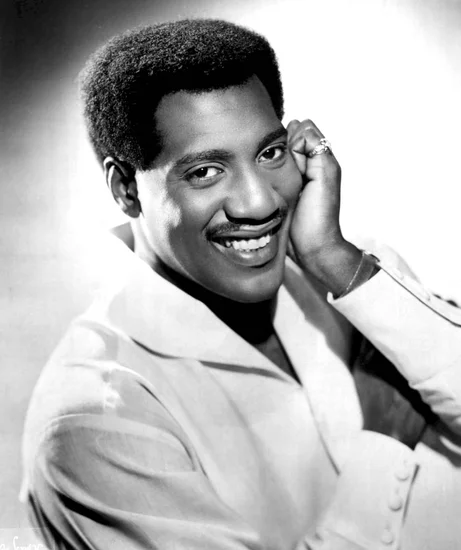
Otis Redding entered the world in Georgia, destined to become one of soul music’s most influential voices. His powerful vocal style and emotional delivery would define the Stax Records sound.
Redding’s brief but brilliant career produced timeless classics like “Sittin’ on the Dock of the Bay.” His tragic death at age 26 cut short a career that was revolutionizing popular music.
1966 – Adam Sandler Born

Adam Sandler was born in Brooklyn, New York, beginning a journey that would make him one of Hollywood’s most successful comedic actors. His unique brand of humor would entertain millions worldwide.
Sandler’s career spans stand-up comedy, television, and blockbuster films. His production company has created numerous successful comedies, establishing him as a major force in entertainment.
1960 – Hugh Grant Born

Hugh Grant was born in London, England, destined to become one of Britain’s most recognizable romantic comedy stars. His charming screen presence would define a generation of romantic films.
Grant’s breakthrough role in “Four Weddings and a Funeral” established him as an international star. His distinctive acting style and British wit made him a beloved figure in Hollywood.
1975 – Michael Bublé Born

Michael Bublé was born in Canada, beginning a musical journey that would revive interest in jazz standards and big band music. His smooth vocal style bridges traditional and contemporary audiences.
Bublé’s success demonstrates the enduring appeal of classic American songbook material. His albums have sold millions worldwide, proving that traditional jazz and swing music remain relevant.
1972 – Goran Višnjić Born
Goran Višnjić was born in Croatia, eventually becoming an internationally recognized actor known for his work in television and film. His dramatic range would earn him roles in major American productions.
Višnjić’s success in Hollywood demonstrates the global nature of modern entertainment. His performances in “ER” and other productions showcased Croatian talent on the world stage.
1985 – Luka Modrić Born
Luka Modrić was born in Croatia, beginning a football career that would establish him as one of the world’s greatest midfielders. His technical skill and vision would earn him international acclaim.
Modrić’s success with Real Madrid and the Croatian national team has made him a global football icon. His Ballon d’Or win broke the decade-long dominance of Messi and Ronaldo.
Notable Deaths on September 9
1976 – Mao Zedong Dies

Mao Zedong, the founder and first Chairman of the Chinese Communist Party, died after transforming China through revolution and political upheaval. His death marked the end of an era in Chinese history.
Mao’s legacy includes both the founding of modern China and the tragic human cost of his policies. His death enabled China’s economic reforms and opening to the world market.
1978 – Jack Warner Dies
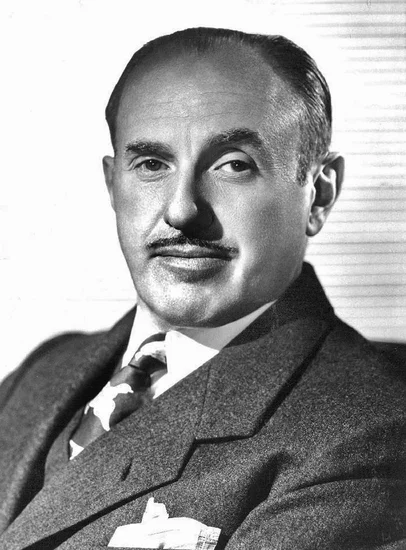
Jack Warner, the legendary film producer and co-founder of Warner Bros., died after helping establish Hollywood as the world’s entertainment capital. His studio produced countless classic films and shaped American cinema.
Warner’s business acumen and creative vision built one of Hollywood’s most successful studios. His contributions to film production and distribution methods influenced the entire entertainment industry.
1981 – Jacques Lacan Dies

Jacques Lacan, the influential French psychoanalyst and psychiatrist, died after revolutionizing psychoanalytic theory and practice. His complex theories influenced psychology, philosophy, and literary criticism.
Lacan’s work challenged traditional Freudian concepts and introduced new approaches to understanding the human psyche. His influence extended far beyond psychology into humanities and social sciences.
2001 – Ahmad Shah Massoud Assassinated
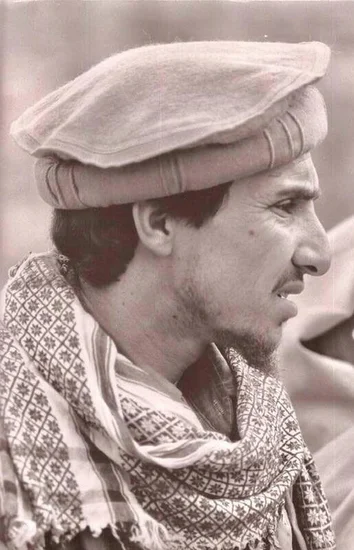
Ahmad Shah Massoud, the legendary Afghan military commander and Northern Alliance leader, was assassinated by al-Qaeda operatives posing as journalists. His death occurred just days before the September 11 attacks.
Massoud’s assassination eliminated one of the Taliban’s most effective opponents. His death significantly weakened Afghan resistance to extremist forces and altered the region’s political landscape.
2003 – Edward Teller Dies

Edward Teller, the Hungarian-American physicist known as the “father of the hydrogen bomb,” died after a controversial career in nuclear weapons development. His work fundamentally changed modern warfare and international relations.
Teller’s scientific achievements included crucial contributions to nuclear physics and weapons technology. His advocacy for nuclear weapons development sparked decades of debate about science and military policy.
2024 – James Earl Jones Dies
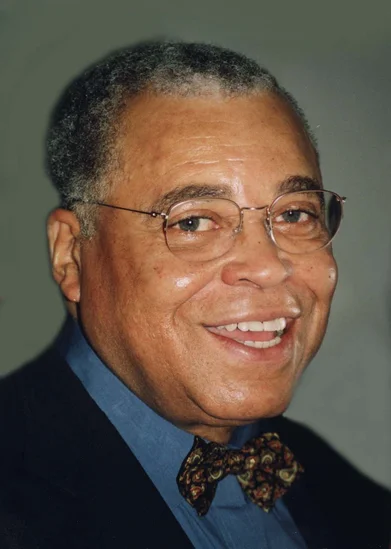
James Earl Jones, the legendary American actor renowned for his distinctive voice and commanding presence, died after a remarkable career spanning decades. His voice work as Darth Vader made him internationally recognizable.
Jones’s theatrical achievements included groundbreaking performances on Broadway and in film. His contributions to American culture transcended entertainment, breaking barriers for African American performers.
Holidays and Observances on September 9
North Korea Independence Day
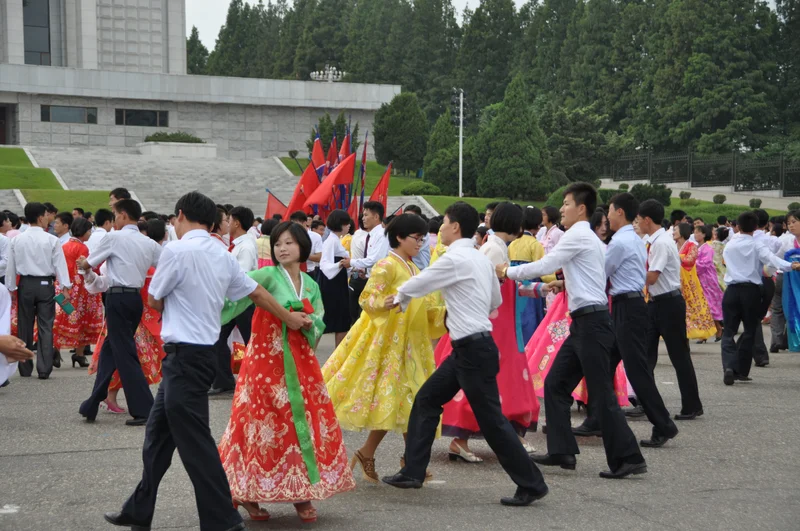
North Korea celebrates Independence Day, commemorating the proclamation of the Democratic People’s Republic of Korea in 1948. This national holiday marks the establishment of the communist state under Kim Il Sung’s leadership.
The celebration includes military parades and political demonstrations showcasing North Korean achievements. This day reinforces the country’s founding principles and political ideology through public ceremonies.
Tajikistan Independence Day
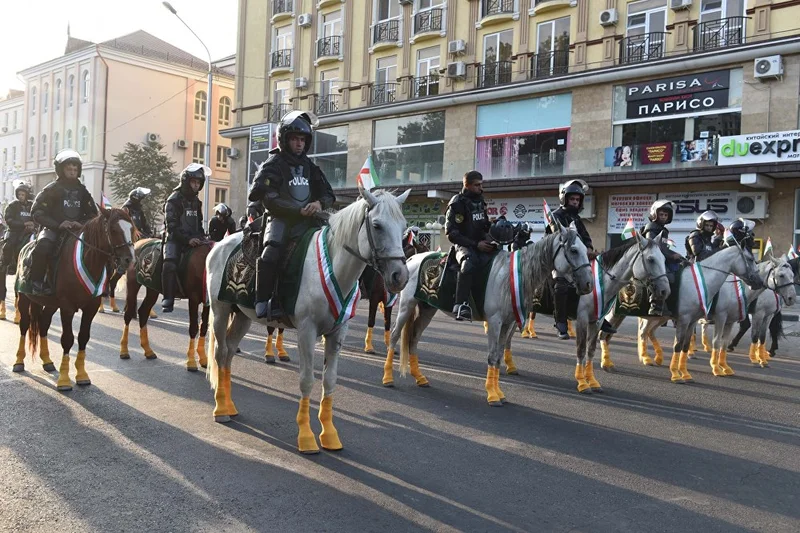
Tajikistan observes Independence Day, celebrating its independence from the Soviet Union in 1991. This national holiday commemorates the birth of Central Asia’s smallest and most mountainous nation.
The celebration includes cultural performances and political speeches highlighting Tajik national identity. This day emphasizes the country’s sovereignty and cultural heritage through traditional festivities.
California Admission Day
California celebrates Admission Day, commemorating its admission to the United States as the 31st state. This observance recognizes California’s unique history and its rapid transformation during the Gold Rush era.
The holiday celebrates California’s diverse cultural heritage and economic contributions to America. Educational institutions and government offices often host special programs highlighting state history and achievements.
Chrysanthemum Day in Japan
Japan observes Chrysanthemum Day or Kiku no Sekku, one of the traditional seasonal festivals celebrating autumn’s arrival. This ancient observance honors longevity and the beauty of chrysanthemum flowers.
The festival includes traditional ceremonies and flower displays throughout the country. This cultural celebration connects modern Japan with its historical traditions and seasonal awareness.
